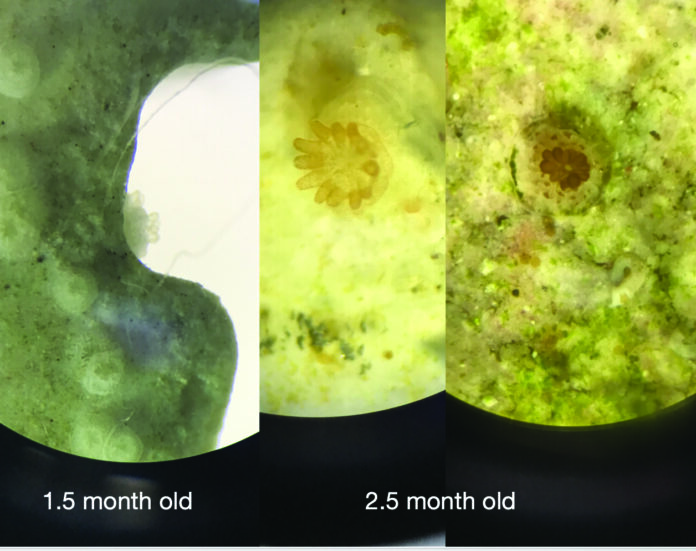Several marine farms have sprung up in the last ten years. They raise corals from healthy fragments taken from the lagoon, and implant them in degraded areas. While this method of rearing helps to combat bleaching and reef degradation, it is less sustainable than the natural cycle of sexual reproduction… Dominique Bellier
The coral farms set up in various parts of Mauritius at the initiative of NGOs and certain hotel groups are helping to speed up the deployment of hard coral in the race against time represented by rising temperatures and the resulting bleaching… But as the NGO SECORE has demonstrated in the Caribbean, sexual reproduction, which by its very nature maintains and diversifies the genetic heritage of corals, is more sustainable and effective. In fact, a study published last September demonstrated that sexually reproduced corals are more resistant to global warming and bleaching.
Our current farms practice a form of cloning that reproduces the same genetic heritage from polyp to polyp. Yet the constant diversification of this heritage is essential to the sustainability and vitality of the species. Nature has understood this, because when the branching and tabular corals of Belle Mare released thousands of small pink balls containing sperm and eggs, all the colonies of the same species laid eggs at the same time, so as to better mix their eggs and seeds.
Corals may be hermaphroditic, but they don’t reproduce on their own! The SECORE Maurice team, working in partnership with Odysseo, made its first egg and sperm collection on the night of the full moon from November 18 to 19 ...
See you in June for the rest of the story…





